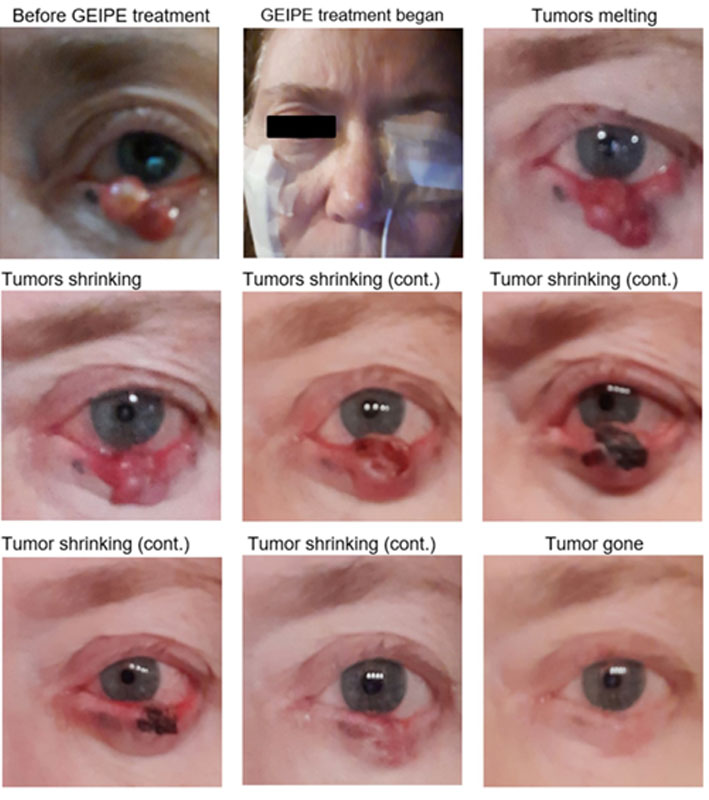
Basal cell carcinoma (BCC), the most common form of skin cancer, typically develops due to sun exposure. While surgical methods have long been the standard treatment, modern advancements offer non-surgical treatment for basal cell carcinoma, providing effective, minimally invasive alternatives for patients.
BCC is a slow-growing cancer that forms in the basal cells, a part of the skin's outermost layer. While it seldom spreads to other parts of the body, if untreated, it can damage surrounding tissues, causing complications.
Traditionally, surgical procedures like Mohs surgery are used to remove cancerous cells. However, innovative basal cell carcinoma treatment options now offer patients the chance to avoid surgery.
For those who want a non-invasive approach, topical treatments are another promising option. Topical medications like imiquimod and 5-fluorouracil (5-FU) are applied directly to the skin, where they help destroy cancerous cells.
Imiquimod works by stimulating the immune system to attack abnormal skin cells, while 5-FU interferes with the growth of cancerous cells by disrupting their DNA. Both treatments are used for superficial basal cell carcinomas and are non-invasive, allowing for home application. Though regular follow-up visits with a healthcare provider are necessary, these treatments may be effective for early-stage cancers.
Cryotherapy is another treatment for basal cell carcinoma that offers a non-surgical solution. It uses extreme cold, usually liquid nitrogen, to freeze and kill cancer cells. This option is good for small, superficial BCCs and can be completed in a single session. The treated area peels away over time as the dead cells are naturally removed by the body.
Cryotherapy is a simple, quick procedure with minimal recovery time. However, while it works well for small lesions, it may not be the best option for larger or more complex cases of BCC.
Photodynamic therapy (PDT) combines a photosensitizing drug with specific light wavelengths to destroy cancer cells. This method is sometimes effective for superficial BCCs, targeting and killing cancer cells without the need for surgery. Patients apply the photosensitizing agent, and after a short waiting period, light exposure activates the drug to destroy the abnormal cells.
PDT offers a non-invasive alternative with minimal side effects. However, patients undergoing PDT must take precautions to avoid sunlight for several days after treatment, as their skin will be highly sensitive.
Laser therapy uses focused light to remove cancer cells. It is especially useful for superficial BCCs and provides a precise, non-invasive alternative to surgery. Laser therapy can minimize scarring, which makes it appealing for cancers located on visible parts of the body like the face or neck. With quick recovery times and minimal side effects, laser therapy can be opted for treating BCC.
Immunotherapy has gained popularity in treating various cancers, including basal cell carcinoma. By enhancing the body's immune response to cancer cells, immunotherapy drugs can help the body recognize and destroy cancer cells naturally. While it is mostly used for more advanced cases of skin cancer, it represents an exciting frontier in non-surgical treatments.
Ongoing research is exploring how immunotherapy might be combined with other treatments to offer even more effective outcomes for those with BCC. For patients who are not candidates for surgery due to other health complications, this may become a viable option in the future.
GEIPE (Gentle Electrotherapy to Inhibit a Pivotal Enzyme) stands out as one of the latest treatments in non-surgical treatment for basal cell carcinoma. This technique uses a low-voltage electric current to target and destroy cancer cells by inhibiting a key enzyme vital for their growth. Unlike traditional surgery, GEIPE is non-invasive, meaning no cutting or sutures are needed.
This approach is celebrated for being both highly effective and cost-efficient. GEIPE is performed with minimal discomfort to the patient, making it an attractive alternative to invasive procedures. Moreover, it leaves no scarring, making it an ideal option for those concerned with cosmetic outcomes. As it directly targets cancer cells without harming the surrounding tissue, it’s a more refined and gentle treatment.
Among all available basal cell carcinoma treatment options, GEIPE is regarded as the most attractive due to its combination of precision, safety, and affordability. This electrotherapy method is gaining traction as an innovative solution for patients looking for alternatives to surgery.
With so many basal cell carcinoma treatment options now available, patients no longer need to rely solely on surgical methods. Though there are numerous non-invasive alternatives like topical treatments, cryotherapy, photodynamic therapy, and laser therapy, the cutting-edge GEIPE treatment stands above all to provide effective treatment for BCC.
Patients seeking to avoid the invasiveness and potential scarring associated with surgery can find comfort in the new innovative approach. As more advancements are made, non-surgical treatments for basal cell carcinoma are becoming the preferred choice for patients.
Learn more about the best basal cell skin cancer treatment option here, and explore how a breakthrough therapy can help you regain your health with minimal impact on your day-to-day life.
⬤ ⬤ ⬤